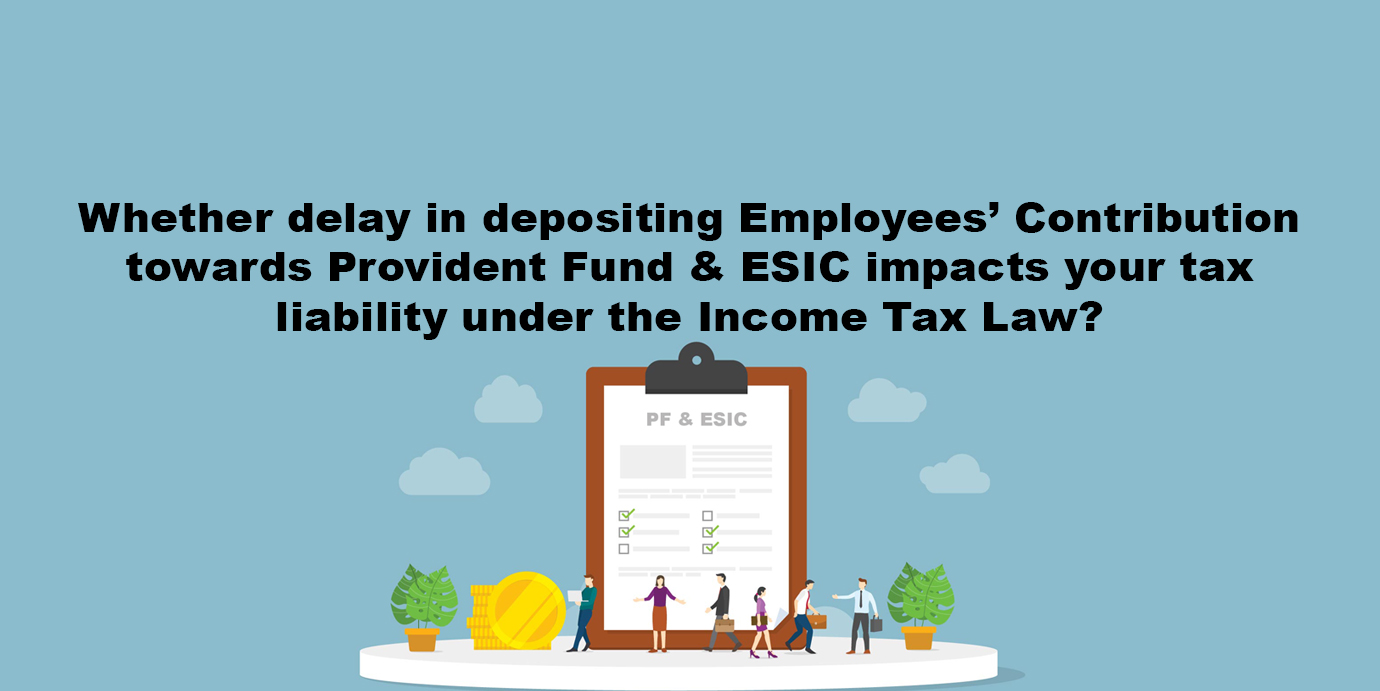With the recent Supreme Court judgment in the case of Checkmate Services Pvt. Ltd. vs Commissioner of Income Tax-I (C.A. No. 2383 of 2016 – SC), the prolonged ambiguity about whether employees’ contribution can be deposited before the due date of filing of return or it has to be deposited on or before the due date mentioned in such acts, has been settled.
Earlier Supreme Court in the case of CIT vs. Alom Extrusion Ltd. [2009] 185 Taxman 416 (SC) allowed deduction of employees’ contribution to Provident Fund if paid before the due date of filing the tax return.
Subsequently various High Courts gave series of decisions relying on the Supreme Court judgment allowing deduction of employees’ contributions to PF if paid on or before the due date of filing the tax return. Gujarat High Court and Kerala High Court took a different view and distinguished the Alom Extrusion decision.
Recently, Supreme Court had an opportunity to revisit its earlier decision and held that the due date for the purpose of section 36(1)(va) of the IT Act shall be the due date as per the relevant statute. The issue before the Supreme Court was with respect to the interpretation of Section 36(1)(va) and Section 43B. In the judgment in Alom Extrusions, this court, did not consider Sections 2(24)(x) and 36(1)(va). The separate provisions in Section 36(1) for employers’ contribution and employees’ contribution, too went unnoticed. The essential character of an employee’s contribution, i.e., that it is part of the employee’s income, held in trust by the employer is underlined by the condition that it has to be deposited on or before the due date. Amounts retained by the employer from out of the employee’s income by way of deduction etc. were treated as income in the hands of the employer.
This decision may lead to complications and further litigation, as there have been many orders processed u/s 143(1) wherein the amounts have been disallowed and matters are pending in appeal before the CIT / Tribunals, there are various orders already passed by Tribunals based on earlier decisions of various High Courts, allowing the deductions. Now with this decision, Tax Department may look into the possibility of rectification u/s 154 in case of orders where the time period for such rectification has not expired. Department may also resort to re-opening assessments u/s 148 where time permits them to do so.
Whether such reversal of decision could have been given effect to prospectively, to avoid subsequent complications & litigation following the decision, is something which requires to be given a thought.





